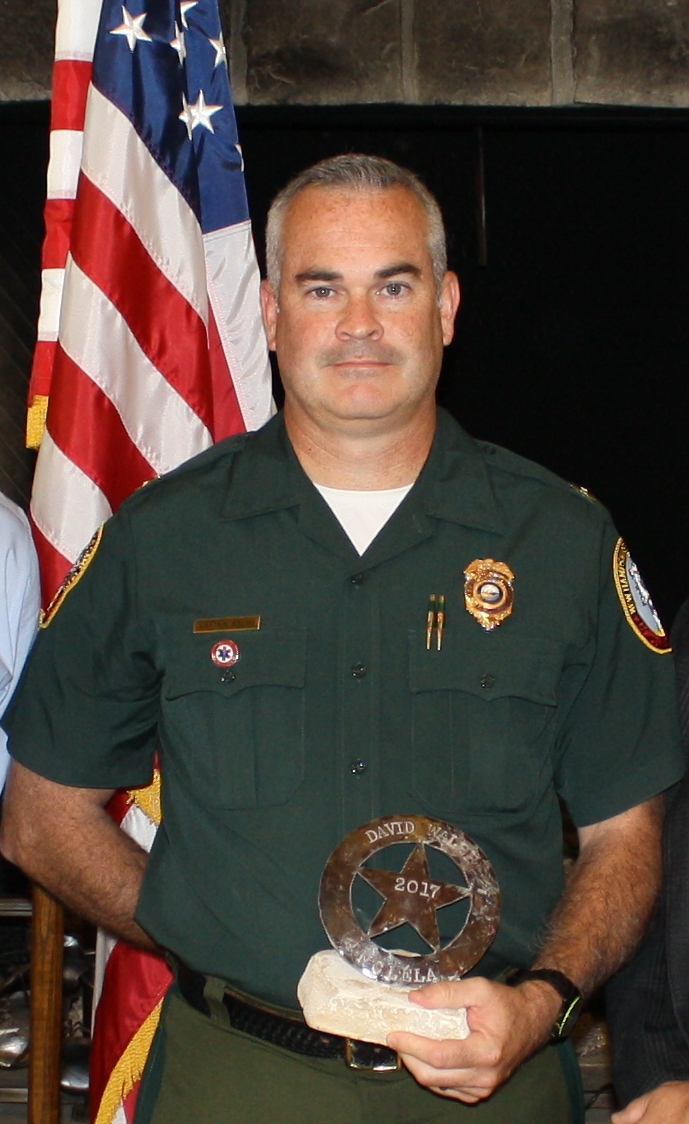Officer David Walsh, New Hampshire Fish and Game Department
In 1950 there were 38 conservation officers in New Hampshire. The state’s population was half a million.
Today the state population has nearly tripled to 1.4 million, and tourism has increased from nearby population centers of Boston, Baltimore and New York. Snowmobiling is popular. ATV use is exploding. They have added spring and fall turkey seasons to enforce. They have a limited moose season now.
They still have only 38 conservation officers. David Walsh, 44, is one of those officers. He’s a 19 year veteran, currently a lieutenant with the New Hampshire Fish and Game Department. Considering weekend duty and vacations that usually means there are about 15 wardens in the field on any given day in New Hampshire.
Hiking is extremely popular in the state, both in mountain areas and on the Appalachian Trail, which passes through the state. Helping people who have become injured or lost while hiking in remote areas is a now a major part of their work load, a “partially funded” mandate, he said. ATV use is the fastest growing outdoor sport, again requiring search and rescue from wardens. A dollar from the ATV registration fee goes to search and rescue, but most years that falls about $200,000 short of what they spend on ATV-related rescues. Hikers can fill out a voluntary hiking card that brings in about $60,000 annually to the department.
Meanwhile, they still have to perform their traditional job of regulating hunting and fishing. “We definitely spend more of our time now on the non-consumptive user than the consumptive user,” he said.
The number of hunters in the state has dropped slightly in recent years. The number of fishing licenses have remained the same. They have 14 miles of coastline.
Wild turkeys were reintroduced to the state in the 1970s and 1980s and are doing well. They now have spring and fall turkey seasons. They have moose – more than Vermont, fewer than Maine, he said.
They started a moose hunting season in the mid 1980s. At its peak they were issuing over 600 moose permits per year. In recent years they have been issuing around 50. Moose numbers have dropped, probably related to stress caused by winter ticks, he said. The trend in milder winters has been helping the ticks.
The focus of the International Conservation Chief’s Academy has been on preventing wildlife tracking. Walsh suspects there is reptile trafficking going on and possibly other trafficking, but they don’t have the manpower to investigate it, Walsh said. “To really get a handle on that, in my, opinion, you need a covert operation. That means extra staff, extra training,” he said.
Given the demands on the 38 conservation officers, the state Legislature would have to prioritize wildlife trafficking and allocate additional funding in order for us to effectively to pursue wildlife traffickers, he said.
Walsh grew up near Boston, but spent summers as a youth in New Hampshire. After a chance meeting with a warden at age six, he decided this was something he might like to do. It’s been a great career, despite some obvious challenges. “There is a different challenge every day, and a conservation officer's office is in the woods,” he said. Walsh encourages young people to consider a career in conservation law enforcement.

